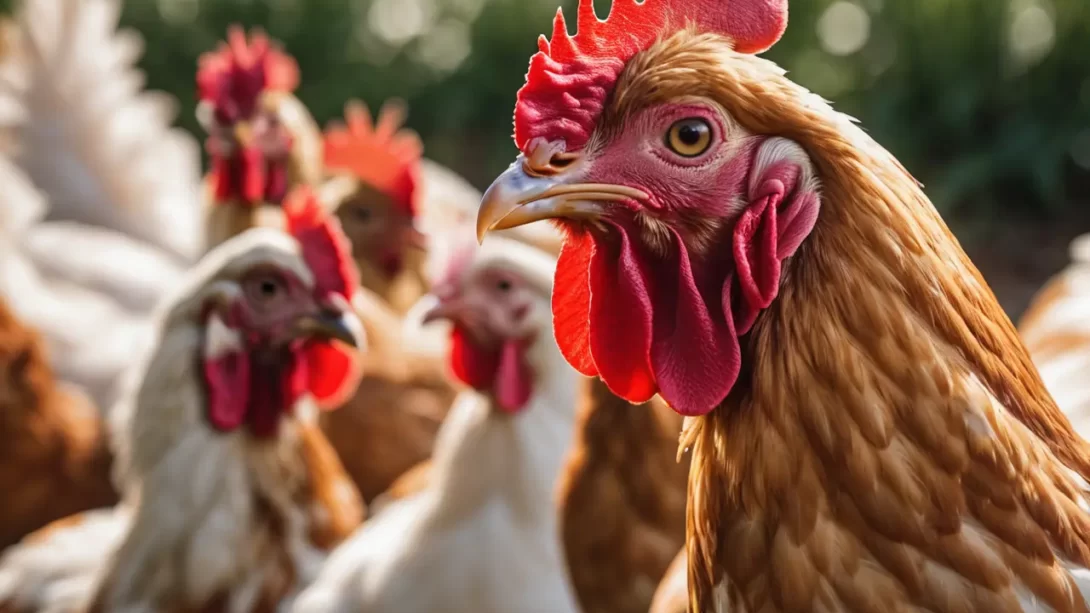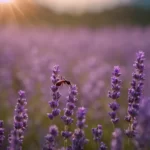Raising chickens can be a rewarding experience, but it also comes with its challenges, one of which is the sudden, unexplained death of birds in the flock. This can be distressing and puzzling for any chicken keeper. Understanding the potential causes of these deaths is crucial for preventing future losses and ensuring the health and wellbeing of the remaining chickens. This article aims to explore common reasons why chickens may die unexpectedly and offers guidance on how to identify and address these issues.
- Rich yellow yolks – A high level of xanthophyll, a coloring agent derived from marigolds, produces deep yellow egg yolks
- Calcium Manganese and Trace Minerals – For strong shells
- Essential Amino Acids – Enhanced with lysine and methionine to give birds the nutrients they need to produce plenty of wholesome and delicious eggs; Also promotes beautiful feathering
- Key Levels of Vitamin A, D, E – Strong reproduction and overall health, with a high level of Vitamin A to help birds grow into healthy adult birds
- Prebiotics, Probiotics and Yeast – Supports immune and digestive health
Common Diseases in Chickens
Chickens, like all animals, are susceptible to a range of diseases, some of which can be fatal. Avian Influenza, Marek’s Disease, and Newcastle Disease are among the most serious ailments affecting chickens. Each of these diseases presents with distinct symptoms. Avian Influenza can cause respiratory distress, decreased egg production, and swelling, while Marek’s Disease often leads to paralysis and tumors. Newcastle Disease symptoms include breathing difficulties, watery eyes, and twisting of the neck. Preventing these diseases involves good hygiene, vaccination (where available), and keeping a closed flock to prevent the introduction of new birds carrying diseases.
Nutritional Deficiencies and Toxicities
Another potential cause of death in chickens is nutritional imbalances. A deficiency in essential nutrients like vitamins and minerals can lead to weakened immune systems and increased susceptibility to diseases. Conversely, toxicity from overconsumption of certain elements or exposure to poisonous substances can also be fatal. Common signs of nutritional issues include poor growth, weak eggshells, and abnormal feathering. Ensuring a balanced diet tailored to the chickens’ age and production status (such as laying hens or meat birds) is vital. Additionally, it’s important to keep toxic plants, moldy food, and harmful chemicals away from chickens.
Environmental Stressors
The environment in which chickens are raised can significantly impact their health and survival. Extreme temperatures, whether hot or cold, can lead to stress and even death in chickens. Heat stress is evident through panting, lethargy, and reduced feed intake, while cold stress is indicated by huddling and decreased activity. Proper ventilation in coops is essential to maintain air quality and regulate temperature. Overcrowding can also be detrimental, leading to increased aggression, feather pecking, and rapid spread of diseases. Providing adequate space, proper insulation, and ventilation in the chicken coop is crucial to mitigate these environmental stressors.
Parasites and Pests
Parasitic infestations are another common reason for the decline and death in chicken flocks. External parasites like mites and lice can cause skin irritation, feather loss, and anemia, while internal parasites like worms can lead to weight loss, weakness, and in severe cases, death. Regular inspections for parasites are important, along with maintaining cleanliness in the coop. Treatments include the use of anti-parasitic medications and natural remedies, but preventive measures are the most effective way to keep these pests at bay. This includes regular cleaning of bedding, proper disposal of manure, and avoiding overcrowding.
Predation and Accidents
Chickens are vulnerable to various predators, including foxes, raccoons, and birds of prey. Predators typically strike at night or during dusk and dawn. Sudden, unexplained deaths in a flock can often be attributed to predator attacks. Implementing robust security measures like secure fencing, covered runs, and lockable coops can significantly reduce the risk of predation. Accidents, such as getting trapped or injured in coop structures, can also be fatal for chickens. Regularly inspecting and maintaining the coop to ensure there are no hazards is key in preventing such accidents.
Management and Biosecurity Practices
Effective management and biosecurity are critical in preventing the spread of diseases and maintaining a healthy chicken flock. Good biosecurity practices include quarantining new birds before introducing them to the flock, controlling human and equipment movement in and out of the coop, and regularly disinfecting the coop and equipment. Isolating sick birds immediately upon noticing symptoms is also crucial to prevent the spread of infectious diseases within the flock. Regular health checks, paying attention to changes in behavior, appearance, and production (such as egg-laying), are essential for early detection of problems.
Conclusion
The sudden death of chickens in a flock can be caused by a multitude of factors including diseases, nutritional imbalances, environmental stressors, parasites, predation, accidents, and poor management practices. Identifying the specific cause can be challenging, but understanding these common issues and implementing preventive measures can significantly reduce the risk. Regular health checks, maintaining a clean and safe environment, providing a balanced diet, and practicing good biosecurity are key to ensuring the health and longevity of your chickens. Remember, proactive care is the most effective strategy in keeping a healthy, happy, and productive flock.




